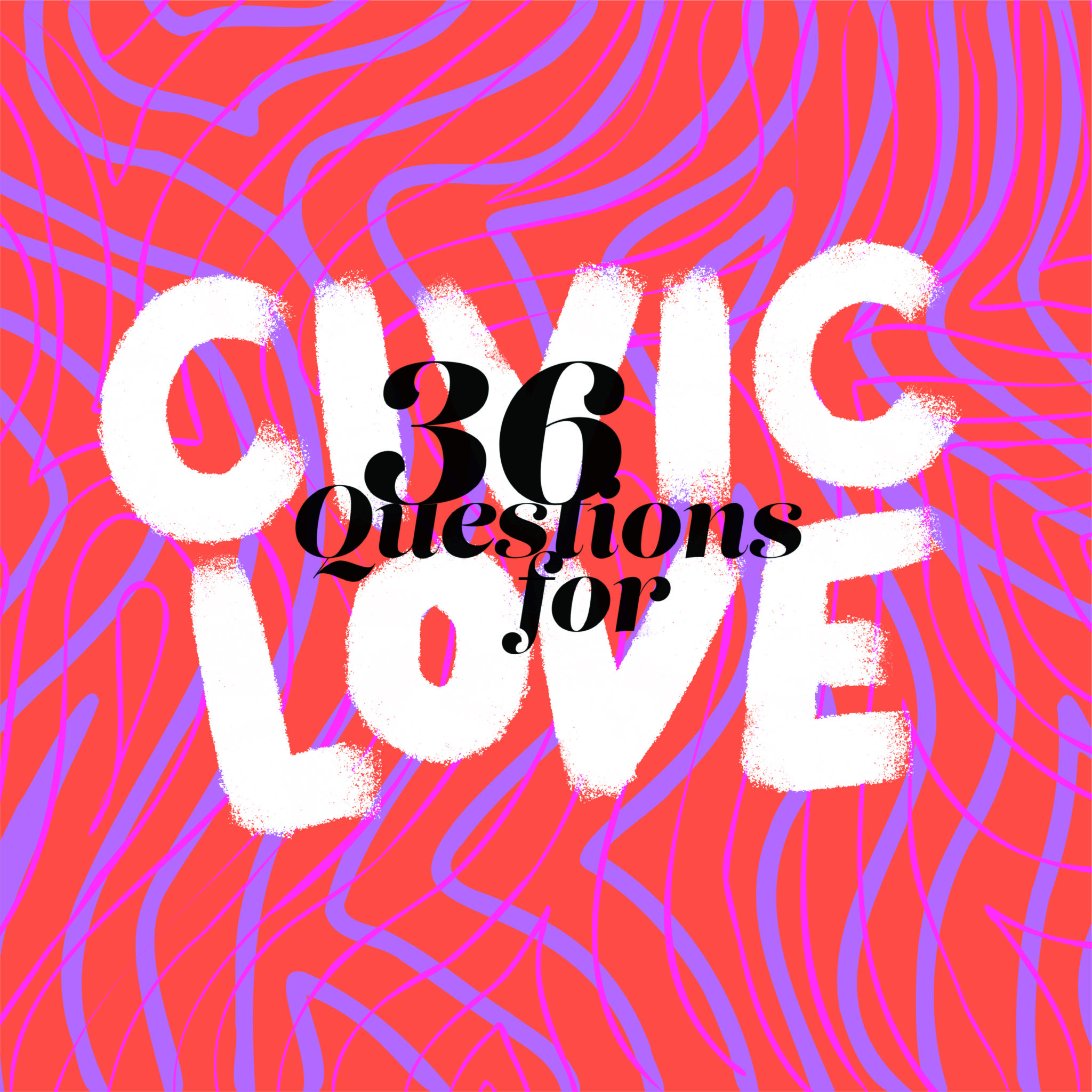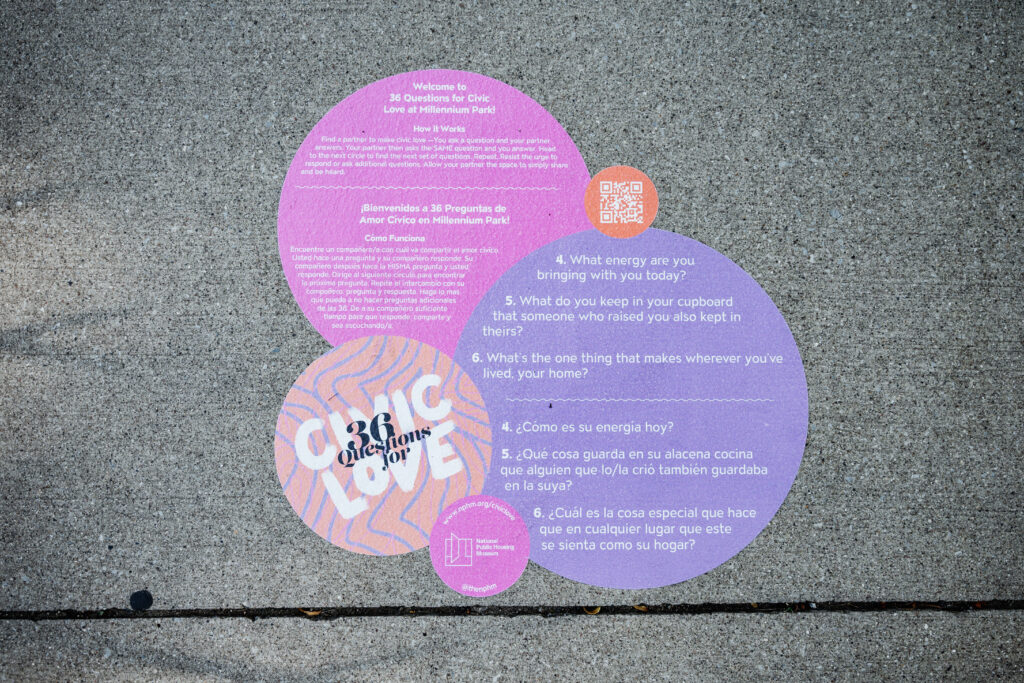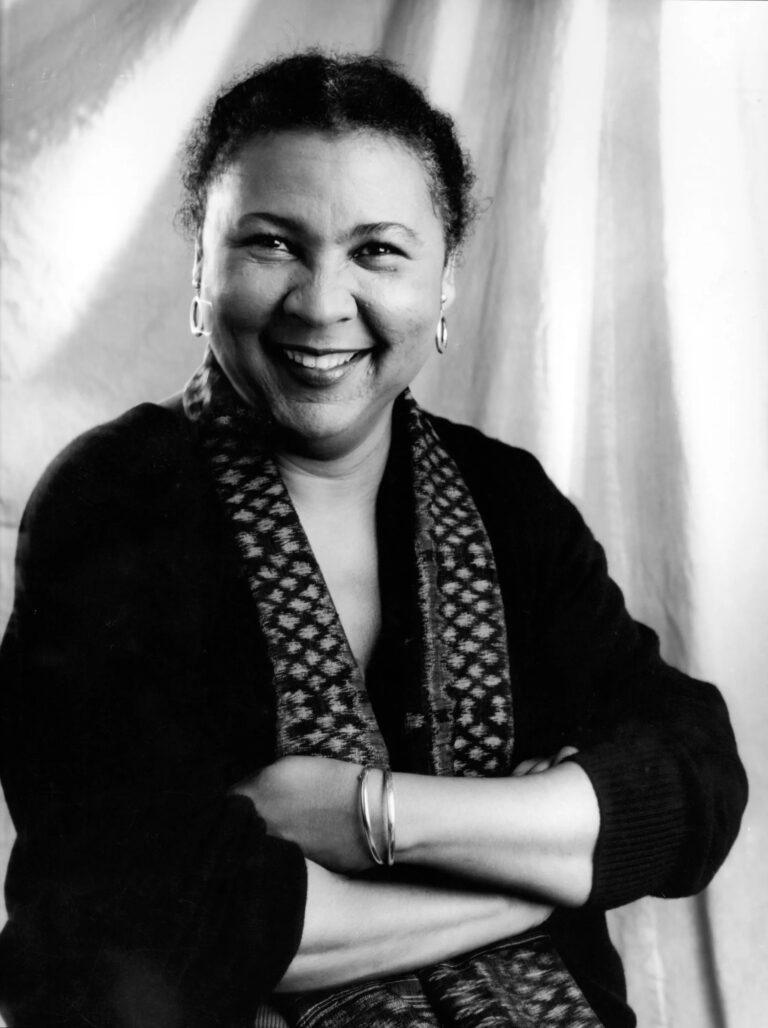36 Questions for Civic Love

36 Questions for Civic Love is a toolkit designed to connect strangers, and strengthen relationships between neighbors, comrades, and colleagues.
What is
civic love?
In 1997, psychologist Arthur Aron explored whether intimacy between two perfect strangers could be accelerated by asking each other a set of 36 questions. We adapted his questions for use in a new kind of social experiment, aimed at helping us all fall in civic love.
Grace Lee BoggsWe urgently need to bring to our communities the limitless capacity to love, serve, and create for and with each other.

Civic Love is one’s love for society, expressed through a commitment to the common good. It is a belief in the idea that we’re all better off, when we are all better off. We manifest Civic Love through all kinds of actions—volunteering, marching, speaking against systemic injustice, making reparations—and always with the love itself is the emotional heart of the work.
Wanna Try Civic Love?
We invite you to invest in civic “love’s promise”—asking and answering a set of 36 questions ranging from “What sound wakes you at the start of your day?” to “What law would you change for the betterment of your community?” — designed to test if we can grow civic love.
Download the toolkit as a PDF:
La versión en español está disponible aquí:

bell hooksEverywhere we learn that love is important, and yet we are bombarded by its failure…This bleak picture in no way alters the nature of our longing. We still hope that love will prevail. We still believe in love’s promise.

See Civic Love in Action
On Valentine’s Day in 2021, the NPHM was featured on the opening night of the SF Urban Film Fest with “36 Questions for Civic Love.” Together with San Francisco District Attorney Chesa Boudin and multimedia journalist Yesica Prado, our Executive Director Lisa Yun Lee facilitates a civic love conversation to address the question, How can love lead us to decriminalize homelessness, rethink incarceration, face hunger, and survive a pandemic?
